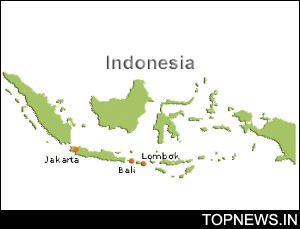Emergency service comes to Medan, among first in Indonesia
 Medan, Indonesia - Maftuh moans in pain as he writhes on the hot asphalt road and holds his injured leg. Latifah lies beside him, her face covered in blood.
Medan, Indonesia - Maftuh moans in pain as he writhes on the hot asphalt road and holds his injured leg. Latifah lies beside him, her face covered in blood.
The pair had an accident in chaotic Indonesian road traffic. Their becak, a bicycle with a sidecar for carrying passengers, was rammed by a bus.
But help is in sight: An ambulance appears within minutes. Paramedics emerge to treat the injured and transport them to hospital as bystanders applaud.
Minutes later, Maftuh and Latifah stand sweating and laughing beside the ambulance car. It was a brilliant performance.
The show was put on to display how, ideally, one of the first citywide emergency services in Indonesia should work.
Indonesia did not have any such services until recently. Patients who needed to be taken to hospitals were typically loaded onto private cars, buses, lorries, even motorcycles and becaks.
But this summer, the German and Hong Kong Red Cross societies helped the Indonesian Red Cross start one of the country's first regular rescue services in Medan, Indonesia's third-largest city, located on the island of Sumatra.
The idea was born in the wake of the devastating tsunami of 2004. Red Cross societies from Australia and Norway helped with similar efforts in Aceh, the region worst hit by the disaster.
"It used to be easier to order a pizza than to call an ambulance," said German Red Cross representative Patrick Bolte.
While some hospitals did have an ambulance in Medan, no unified rescue system existed, and there was no universal emergency phone number to call. Now there is one emergency number, 118, and one emergency centre that coordinates ambulances from six hospitals.
"We have nine rescue vehicles and two motorcycles manned by paramedics," Bolte said. Ideally, he admitted, a city with a population of 2 million like Medan should have at least 100 ambulances.
"We are still only at the beginning," he said.
Mohammed Fitri Rathmadana, chief of the centre, said the number of patients being served was rising steadily: 12 injured people were transported in August, 25 in September and 59 in October.
Of those, 59 per cent were traffic accident victims and 27 per cent had suffered heart attacks, he said.
During the first five weeks of its operation, the centre received about 20,000 calls.
"But 99 per cent of these were out of sheer curiosity," Mohammed admitted. The centre now blocks the phone numbers of people after three bogus calls.
Medan's hospitals treat about 3,000 emergencies each month, but statistics showed that most still arrive in privately organized transport.
"People still have no confidence in a regular rescue service yet," said Lubis Raihanah, a doctor at the Provincial Health Department.
"They are simply not used to relying on a public service," she said.
Additionally, many people are afraid of the potential cost of calling a professional ambulance. Few Indonesians have health insurance that might pick up the tab.
But the German Red Cross came up with an idea: Private firms can purchase vouchers for ambulance transportation in advance.
If a patient is unable to pay the 198,000-rupiah (about 17-dollar) fare, they are handed one of the vouchers along with a note with greetings from the sponsors, giving the companies some advertising while they provide a community service.
Organizers are also getting the word out on the new emergency service by advertising on thousands of becaks. Their drivers were presented with red T-shirts and new red sunroofs for their vehicles, all emblazoned with the emergency number 118. (dpa)